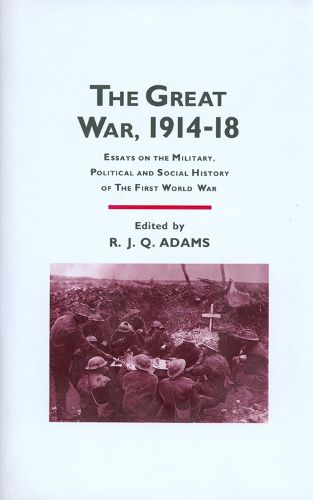Readings Newsletter
Become a Readings Member to make your shopping experience even easier.
Sign in or sign up for free!
You’re not far away from qualifying for FREE standard shipping within Australia
You’ve qualified for FREE standard shipping within Australia
The cart is loading…






In this collection of seven original essays and three critical comments, senior scholars address the greatest conflict in modern history to its time–the 1914-18 World War. Trevor Wilson begins with an essay on the historical significance of the war, Alfred Gollin writes on early British air defense arrangements, and Martin Kitchen discusses civil-military relations in Germany. Critical comment on these papers is given by Thomas C. Kennedy.
The wartime experience of the Canadian Expeditionary Force is the subject of an essay by Desmond Morton, while Charles R. Shrader analyzes the history of U.S. troops integrated into the British logistical system. T. H. E. Travers offers critical comment.
Edward M. Coffman discusses the pre-war training of the U.S. Officer Corps, and Paolo E. Coletta closes the volume with an essay on the U.S. Navy during the period of American neutrality. Joseph G. Dawson comments on these papers.
$9.00 standard shipping within Australia
FREE standard shipping within Australia for orders over $100.00
Express & International shipping calculated at checkout
In this collection of seven original essays and three critical comments, senior scholars address the greatest conflict in modern history to its time–the 1914-18 World War. Trevor Wilson begins with an essay on the historical significance of the war, Alfred Gollin writes on early British air defense arrangements, and Martin Kitchen discusses civil-military relations in Germany. Critical comment on these papers is given by Thomas C. Kennedy.
The wartime experience of the Canadian Expeditionary Force is the subject of an essay by Desmond Morton, while Charles R. Shrader analyzes the history of U.S. troops integrated into the British logistical system. T. H. E. Travers offers critical comment.
Edward M. Coffman discusses the pre-war training of the U.S. Officer Corps, and Paolo E. Coletta closes the volume with an essay on the U.S. Navy during the period of American neutrality. Joseph G. Dawson comments on these papers.